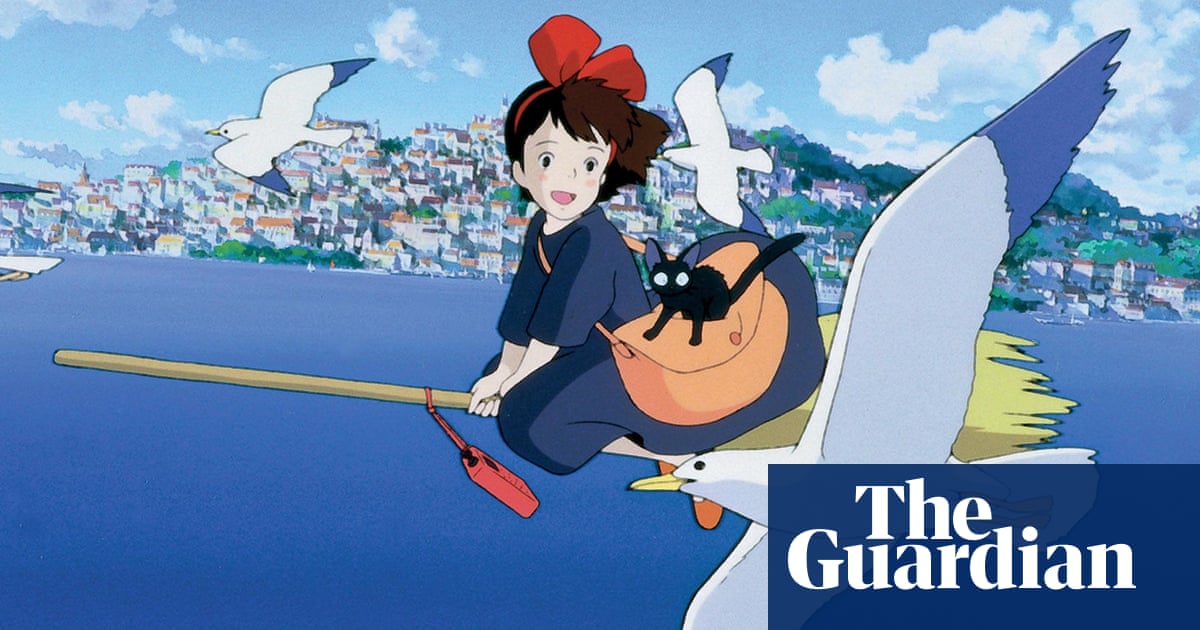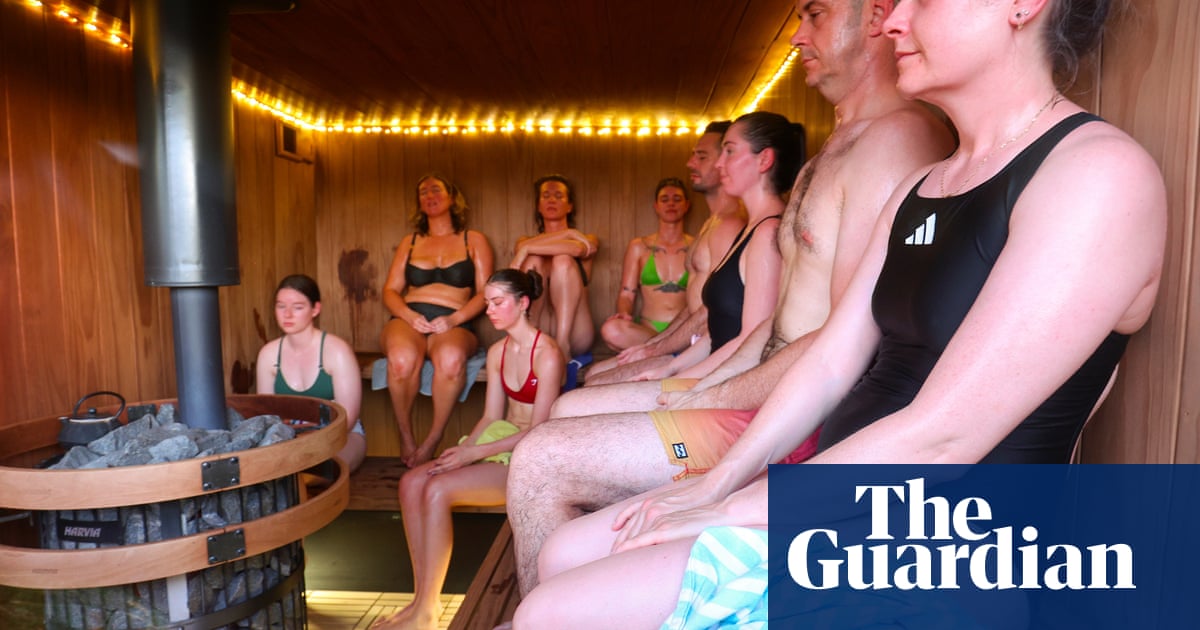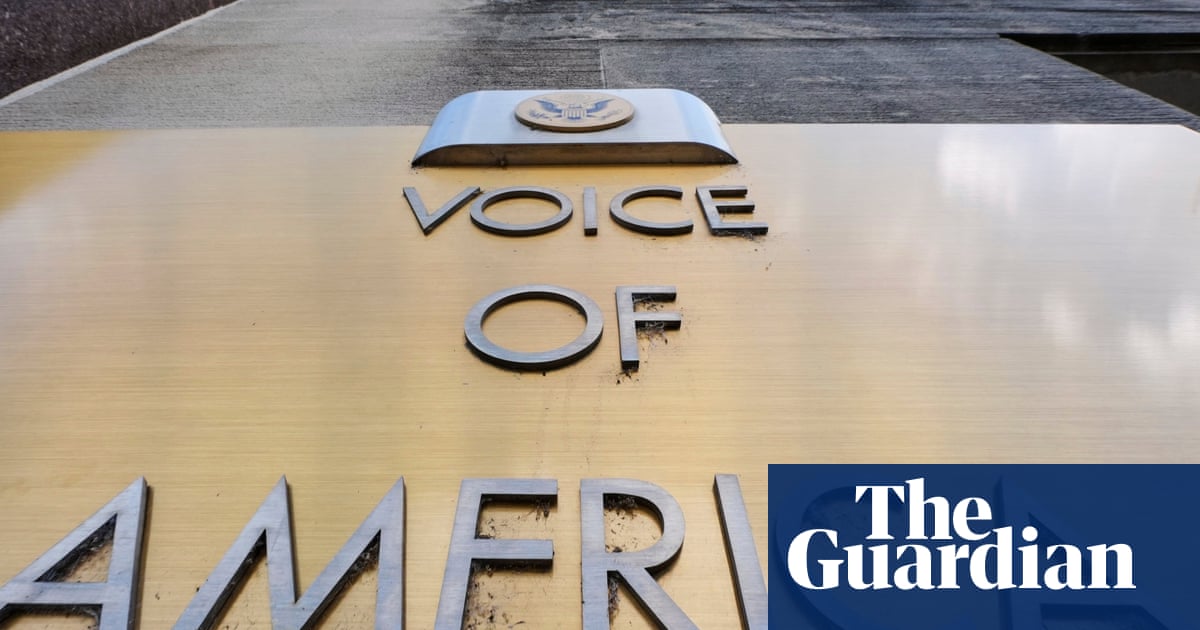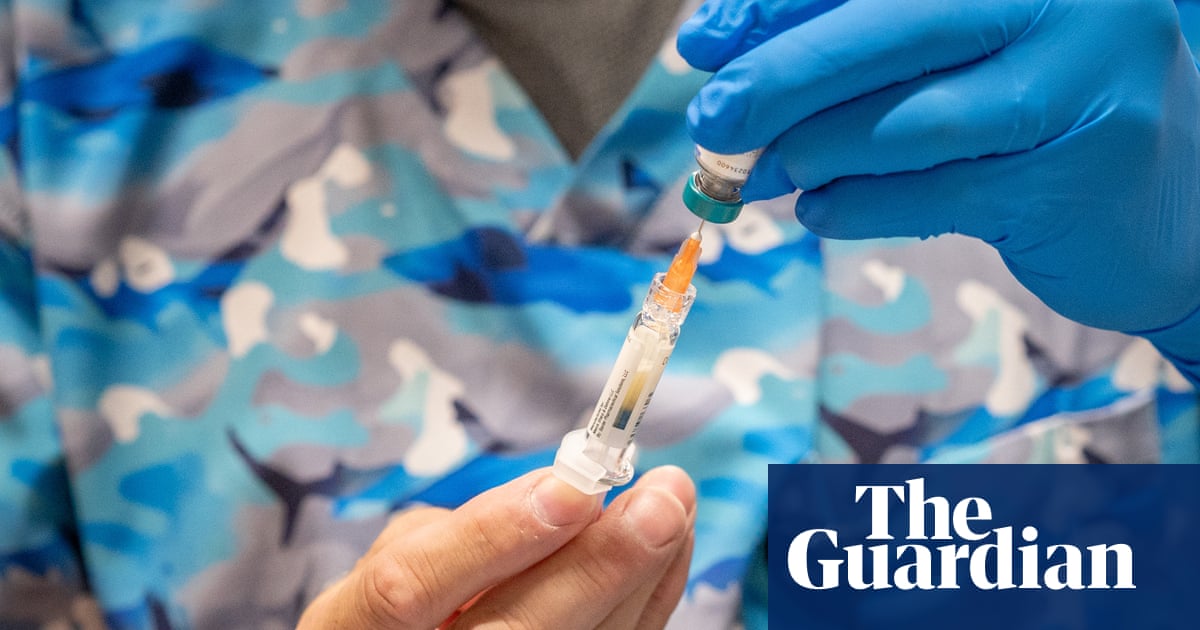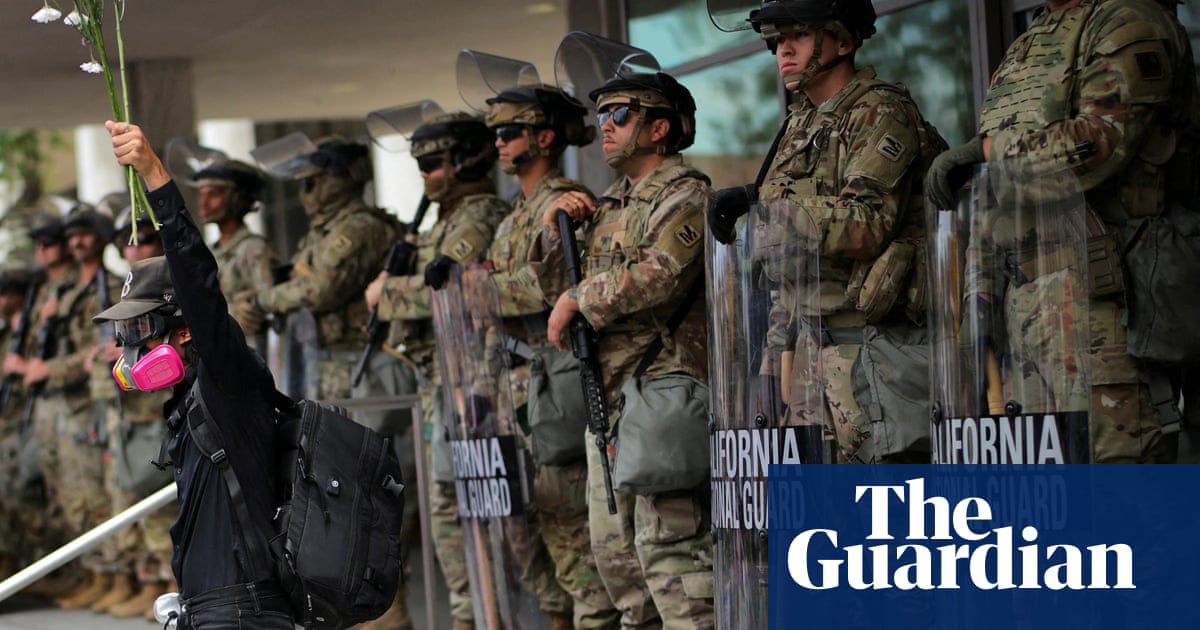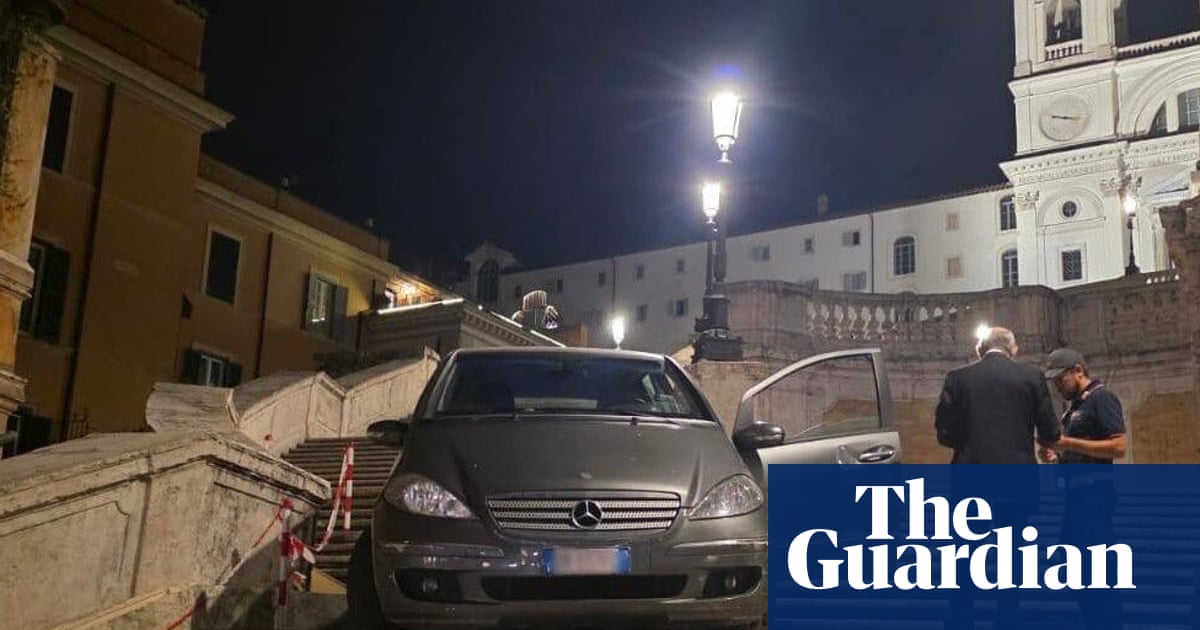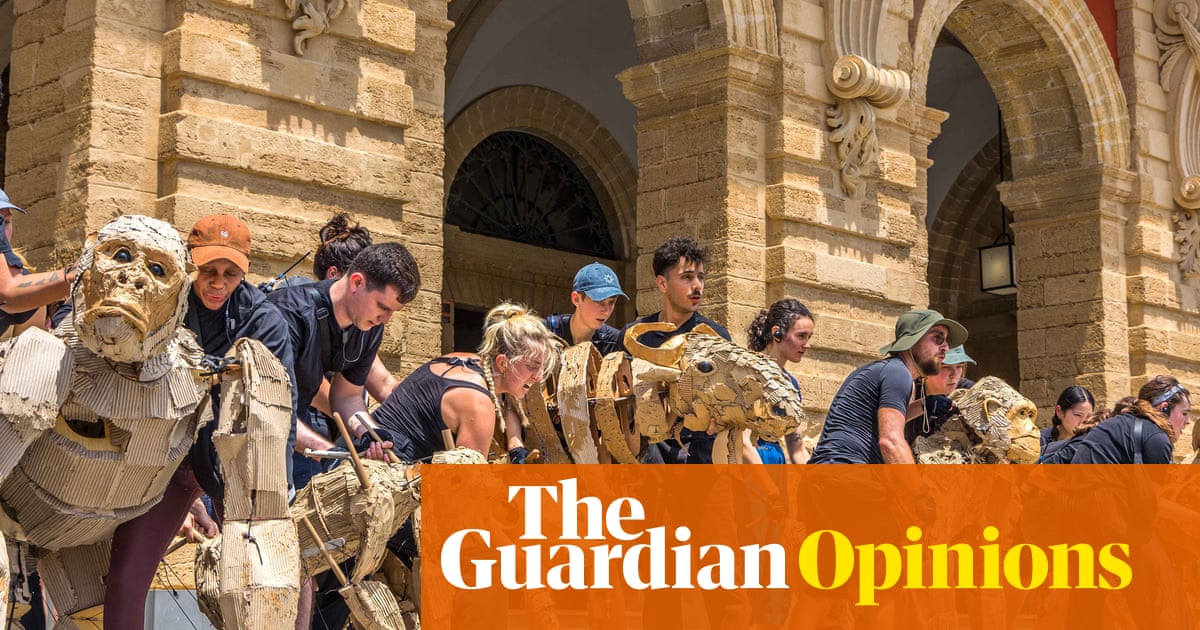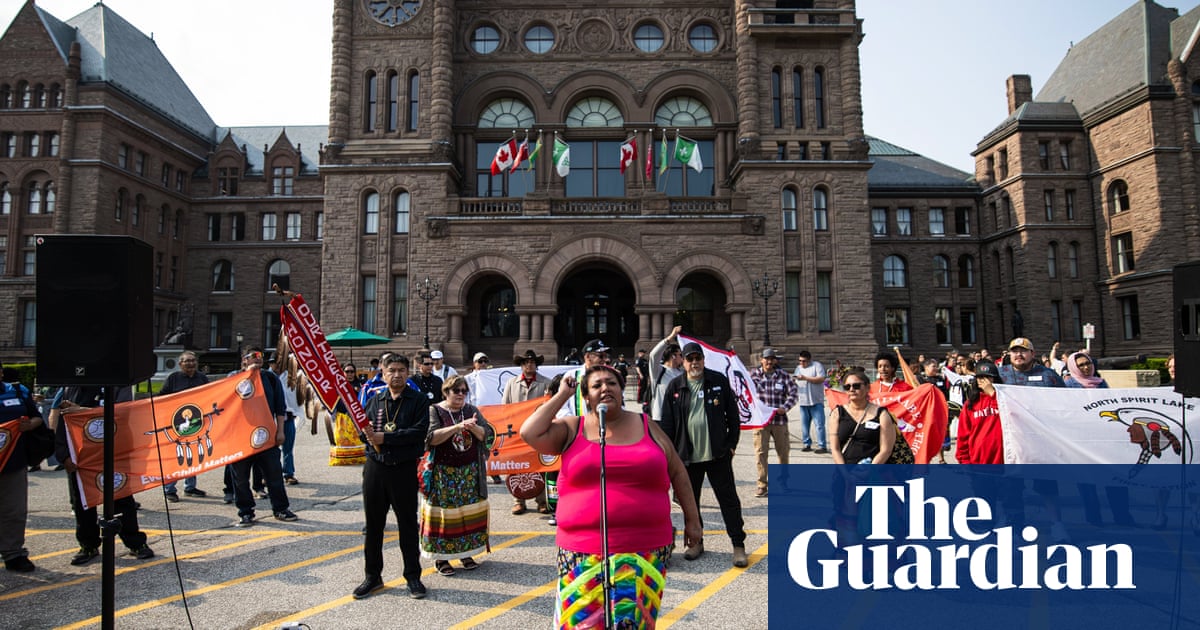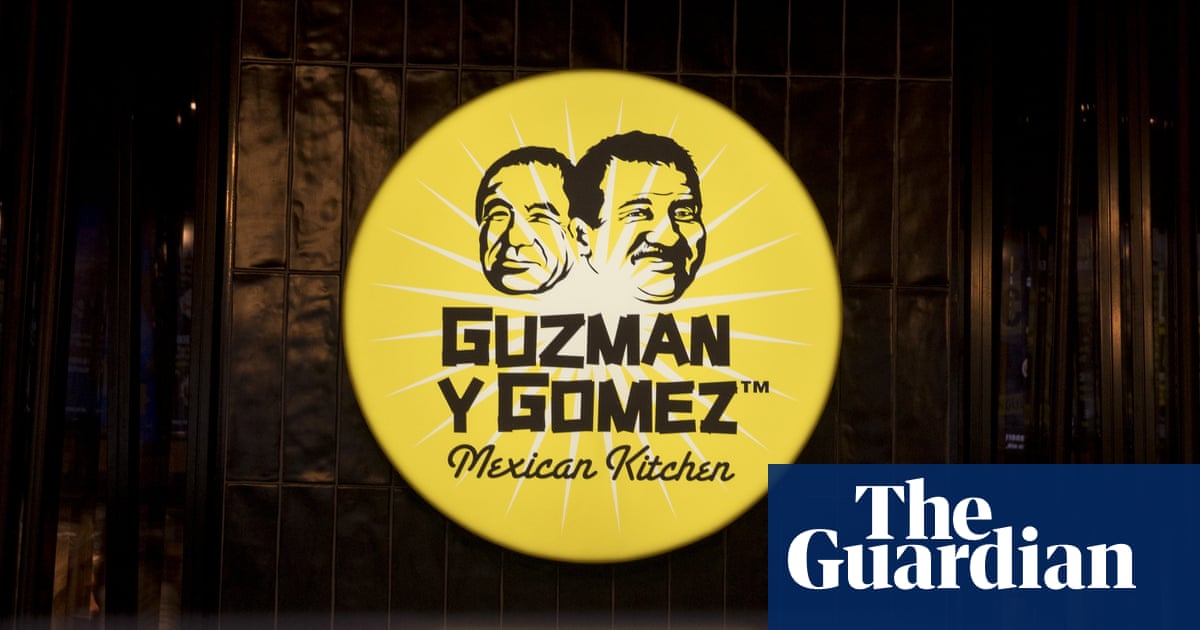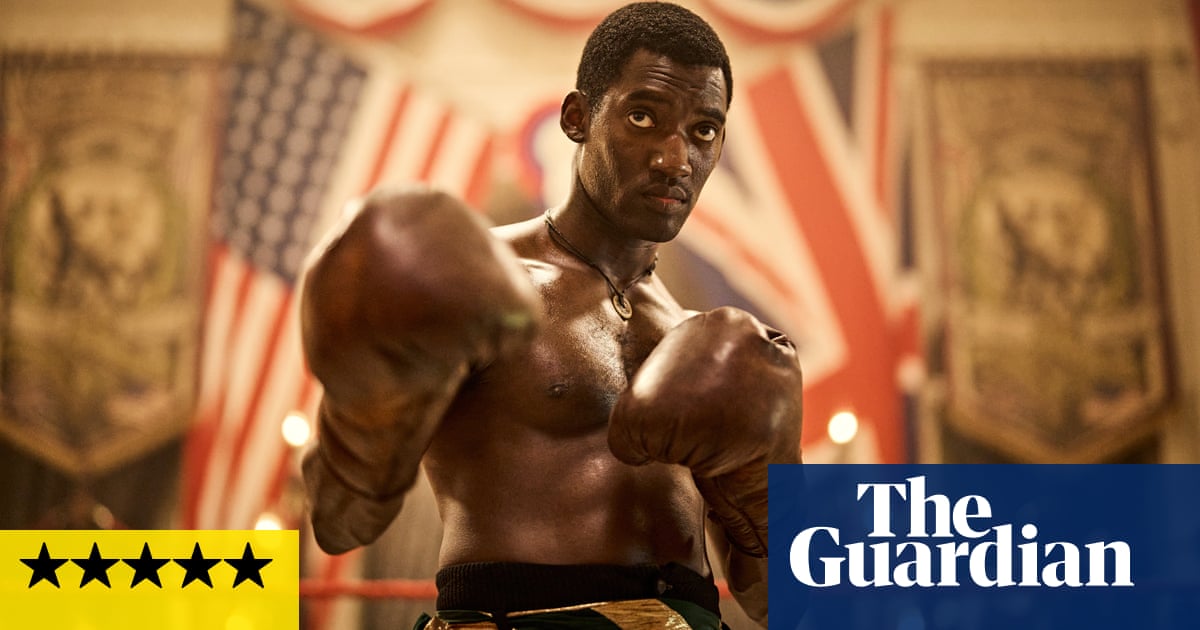When EA Hanks was 14, her mother announced she had bought a Winnebago and they were going to drive across the US in it. It was 1996, and Hanks (her initials stand for Elizabeth Ann), had recently left her mother, Susan, to go to live with her father, the actor Tom Hanks, in Los Angeles. “Things between my mother and I were at an absolute low point,” she says. The drive, she remembers, from California – long hours on the road, her mother chain-smoking and listening to Christian rock music, stopping only to eat and sleep – was “three awkward, silent, painful months that would end up with us in Florida”. It is not clear what the point of the road trip was – though Hanks met members of her mother’s family for the first time in Florida – but then not many things were clear with Susan.
In 2019, nearly 20 years after Susan died, Hanks took to the same road, Interstate 10, in an attempt to make sense of her mother’s life. This forms the basis of her memoir, The 10. “I had no idea where my mom grew up, or how she grew up, or who was around. All I knew is that she never spoke of it,” says Hanks. “It always had this tinge of southern gothic drama and violence.”
Hanks’s childhood had been abusive and neglectful; her mother had at times left her without food or clean clothes, and when she was 13, punched her in the face for no apparent reason. Susan, who had also been an actor and used the stage name Samantha Lewes, was a cocaine addict and mentally ill (not diagnosed, but Hanks writes that her symptoms led her to believe she had bipolar disorder). She also knew almost nothing of her mother’s family. When Susan became ill with cancer, none of them visited her, and none went to her funeral.

Years later, going through Susan’s belongings, she found a journal. In it, Susan makes an accusation against her own father that Hanks describes as “an absolutely hellacious crime of sexual assault, murder and cannibalisation of a young girl”. It was so overblown that it seemed unbelievable – this was also the woman who heard the voice of God, and thought her ex-husband had installed men in the walls of her house to spy on her.
“I was increasingly aware that my mother’s mental health was precarious and, as her life went on, was devolving into a state of utter paranoia and delusion,” says Hanks. “But my mom’s stories always had a grain of truth and I think when I read the journal, something about this felt resonant. If this is the type of trauma that my mom experienced in her youth, her life makes a little bit more sense to me.” From her father, she borrowed a van – a Ford Transit, affectionately known as the “Shit Box” – packed a typewriter (an appreciation she shares with her dad), researched how to survive on the road, and went in search of answers.
Hanks, who will be 43 this month, had become a journalist after university, living in New York City and working for the Huffington Post, “where I was living on a four-hour news cycle, and was essentially working in an HTML sweatshop. I stumbled out the other end in my late 20s, with the beginnings of an ulcer and absolutely no creative process whatsoever.” She moved back to LA in 2012, and did various jobs, including working as a personal assistant and in bookshops. Out with friends of friends, she made them laugh – when we speak over Zoom, Hanks has the articulacy and wry humour of her father – and they offered her a job writing jokes for a TV show. She started creating scripts for shows and films, “that were, thank God, never going to get made”, but it rekindled her love of writing.

Inspired by that 1996 road trip, she pitched her idea of recreating it as an investigation into American politics that would take her from the Democrat-stronghold of California, through Texas and the deep south, to Trump’s Florida. “No editor was interested in that story from me.” She laughs. “Just not the right writer, not the right voice. Basically, [The 10] starts off as a magnificent failure of a magazine piece.” Then it became personal.
As Hanks was hoping to uncover the facts behind the mystery of her mother’s life, and her grandfather’s potential crime, she was also trying to get to grips with the truth behind the US’s mythology at a time of growing danger. (She never mentions him by name, but the other man who lurks in the book’s shadows is the current US president. The first time Trump was inaugurated, Hanks writes, she spent a rainy day at Disneyland, a place of consolation as much as celebration for her, Hollywood child that she is.)
The places the Interstate 10 passes through, she says: “the south-west, Texas and the deep south, are really doing the heavy lifting in the myth of American exceptionalism – manifest destiny, cowboys and Indians, the ‘gallant south’ – these are at the root of our most pernicious, glamorous and dangerous building blocks of American exceptionalism.”
The US she journeys through is extremely beautiful (the deserts, forests and swamplands) and brutal. She sees the best of the country – to Hanks, that’s New Orleans, with its culture defined by its people – and the worst. The vast emptiness of the landscapes isn’t a fact of geography, she points out, but “because we killed 90% of the Indigenous population in a single generation. It’s not empty, it’s a crime scene.”
In Mississippi, she visited the Confederate flag-lined estate of Jefferson Davis, who was the first and only president of the Confederate States between 1861 and 1865. The estate is now a museum and Hanks listened to a guide with disgust. “We’re still debating what the civil war was about,” she says. “Is this a war about states’ rights, or is this a war about being able to own human beings?” It made her think about the similarities between personal and political trauma, even if the stakes are wildly different – that one way to deal with it, maybe the only way, is to face it. “You can’t move on from something like the civil war if we can’t even agree on what the facts are,” she says. “That’s why we’re still stuck in it.”

When Hanks was about five, her parents split up and Susan took Hanks and her elder brother, Colin, to live in Sacramento. She writes about a house full of cigarette smoke, the fridge empty and a back garden too full of dog’s mess to play in. Sometimes, when Susan disappeared for a night or two, Colin would have to look after his sister. Friends’ parents banned their children from having sleepovers at her house, not least because: “The one time a kid did, we found a loaded gun in the box where we kept the television remotes.”
When did she realise her home life wasn’t like other people’s? “I think when I was really young I had a language for my mom as an addict which is, I guess, the plus side of what happens when your mom hosts multiple 12-step meetings in your living room.” There were often people with addictions at the house, which was frightening to a child. “I did not have an understanding of why my mom heard the voice of God and why she felt empowered to be in conversation with him in public, no matter how people around her responded.”
When Hanks was older, schoolfriends started to notice that she was often without a packed lunch, or that she would ask the teacher for food, or her hair wasn’t brushed and her clothes were dirty. “And let’s not talk about how often I went to the dentist.” Sometimes her mother could be wonderful – she introduced Hanks to classical music, important films and books. She let the teenage Hanks dye her hair, and she drove her around the state to the horse shows in which she competed. The switch between good times and bad was unsettling. It would have been easier, thinks Hanks, if her mother had just picked a side.
There was also the wild swing between life with her mother and life with her father, with whom she would spend some weekends and most school holidays, in LA or on film sets (she had a small part in Forrest Gump, the 1994 hit that won Tom his second Oscar). “It was like visiting a bizarre planet occasionally,” she says. Tom Hanks was at the very centre of a booming Hollywood in the 90s. In the family, she says with a laugh, there was “what Colin and I call BG and AG – before Gump and after Gump”.
In Sacramento, it was quiet, usually just Hanks and her mother, who would often be chain-smoking in bed and reading the Bible. At her father’s house, it was full of “assistants, and the phone was always ringing, the doorbell always ringing”. And there was family – her two younger half-brothers, and her stepmother, Rita Wilson, and usually many members of Wilson’s extended family. “It’s family dinner and three meals, and suddenly I have to do my homework, which was not something [my mom] cared about,” says Hanks. She remembers going to the Oscars – she thinks it was the night her father won for Forrest Gump – and then going back to Sacramento, where her mother, unable to face cooking, would feed her fast food most nights, and thinking: “My life is not what it was last weekend.”

To Susan, her ex-husband’s immense success and fame was “catastrophic”, writes Hanks. In Susan’s view, she says: “It obliterated whatever chance she had at an artistic path, a career as a great stage actress.” But for her father, too, fame has been a kind of catastrophe, “in that it obliterates his humanity. He doesn’t get to be a fully rounded person with his own version of good days and bad days. He can only be Tom Hanks, and people lose sight not only of his personhood, but also, I think, his artistry. It just becomes a brand.” In Sacramento, however frightening: “The one thing that I had is that I was growing up in anonymity, with privacy, mostly before the internet, and certainly before the heyday of the tabloid industry that was documenting the lives of the ‘daughters of …’ I got to skip all of that.”
As a child, she remembers feeling deeply embarrassed on behalf of the people who became so starstruck and emotional around her father – these days, he’s not just the Hollywood Everyman, but America’s Dad. “As I got older, I changed how I feel. I think I have a much deeper respect for what is happening for those people in that moment, which is that they are recognising a true friend. It’s a one-sided friendship, but I don’t think I can question the genuine nature of what is playing out on their face, the joy they have in recognising someone.” For those in their 20s and 30s who grew up with Toy Story – the main character, cowboy Woody, being voiced by Tom Hanks – it’s especially true. “I would argue, and I know that my dad would agree, that Woody is his great artistic legacy. If you can be cynical about a grown person who instantly transforms back into that child when they hear [his voice], you’re a sharper person than I am.” She adds with a smile: “I also think you get a little older and you’re, like: ‘Oh, that is why I don’t have college debt, so let’s respect it.’”
When she was a child, her father knew what her home life with her mother was like, but despite trying, says Hanks, he did not have custody of his children. “While my mom was a scary and physically threatening presence who pushed, and pulled hair, and locked me in closets and used food deprivation as a tool, she was not someone who, up until that point, was hitting me.”

Then, one night when Hanks was 13, seemingly out of nowhere, her mother dragged her across the room, and punched her in the face. “It wasn’t until that happened, and we had evidence of assault that I was able to leave.” But Hanks had always felt the threat of violence. “It’s a lifetime spent on very thin ice, and you’re aware of every step you take, and the threat of pushing someone from it being a good day, into it being a bad day. You get very agile with good jokes, changing the subject.” As an adult, it led to “emotional distance, discomfort with intimacy”.
By the time she took to the road, with her mother’s death nearly 20 years in the rear-view mirror and years of therapy, Hanks had reached a degree of peace. It is probably not a spoiler to say her book does not have a neat Hollywood ending, this being real life, but Susan emerges as someone who was failed by the culture she grew up in. As in 1996, her mother was her travel companion – she brought along Susan’s journal and a white binder full of her poetry, some of which she includes in her book. Some of her writings are rambling and alarming, her illness on the page, but some of her poetry is lovely. “I think anybody who’s buried a loved one knows that feeling when the two-way conversation suddenly becomes one-sided,” says Hanks. “To engage with her on that level, in good faith as her editor [Susan wrote multiple drafts of her poems], was like entering back into conversation with her.”
Six months on the open road gave Hanks the time and space to think about her mother – not just the sadness of her life, and the damage she did, but other things too. “When someone’s been dead for 20 years, you forget. Were my mom’s eyes hazel? What did her voice sound like? What was that recipe that I really enjoyed that she made on the rare occasions she cooked? It was remembering that 20 years on, I’m still letting her go, and I’m also choosing what parts to keep. That is something that the book gave me – to remind me that I’m still my mother’s daughter.”
In the UK, the NSPCC offers support to children on 0800 1111, and adults concerned about a child on 0808 800 5000. The National Association for People Abused in Childhood (Napac) offers support for adult survivors on 0808 801 0331. In the US, call or text the Childhelp abuse hotline on 800-422-4453. In Australia, children, young adults, parents and teachers can contact the Kids Helpline on 1800 55 1800; adult survivors can seek help at Blue Knot Foundation on 1300 657 380. Other sources of help can be found at Child Helplines International

 1 month ago
30
1 month ago
30
